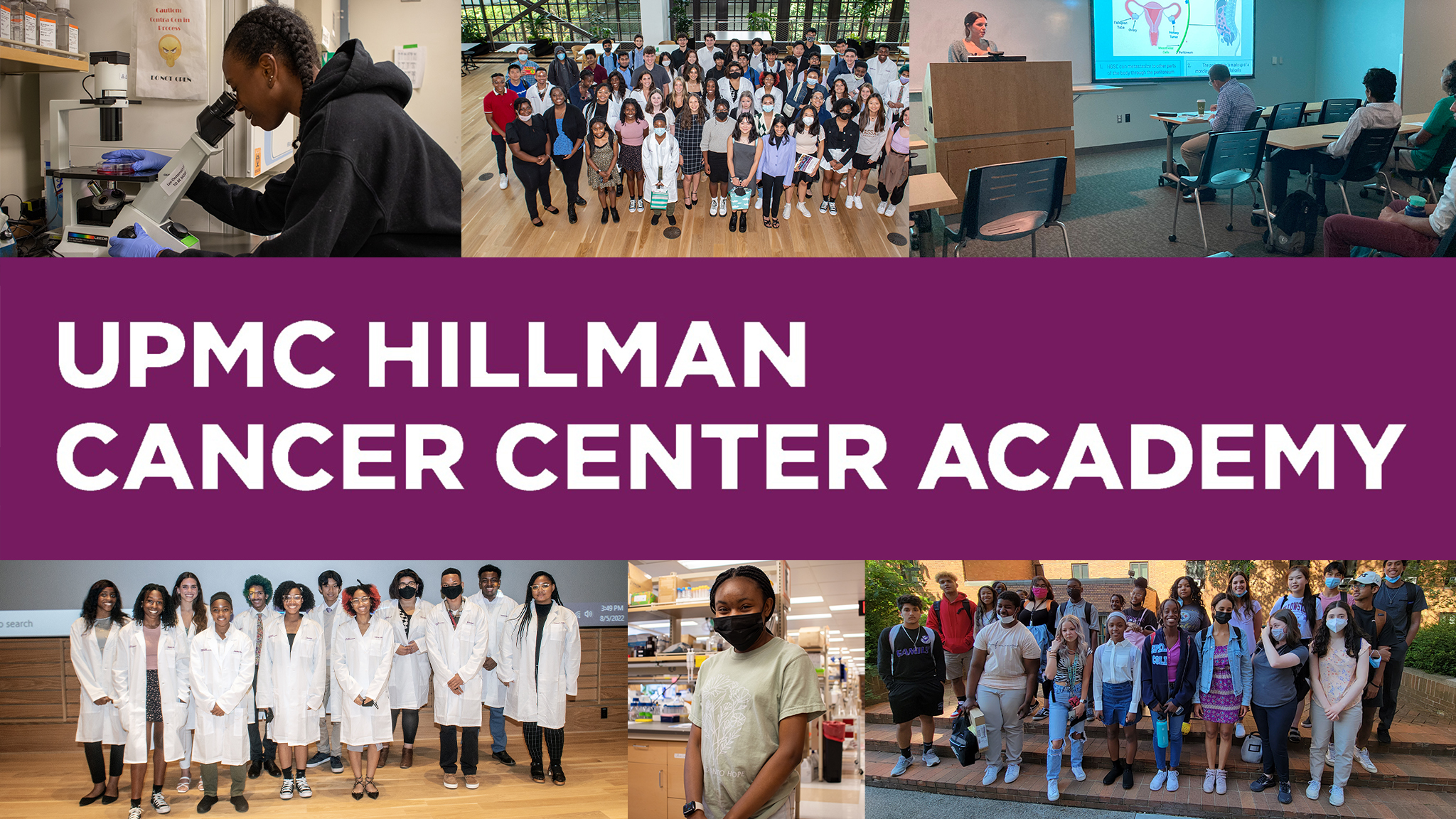Our Research Sites
Students will be placed into one of 8 research sites, located across the University of Pittsburgh campus as well as UPMC facilities. Each site has a specific focus, and often do very different types of research projects. Details about the sites can be found below.
Please note that the CoSBBI, CompBio, and Surgical Oncology sites are computational. You will be primarily or most likely, exclusively, working on a computer in a classroom or office.
Site Directors:
Deborah L. Galson, PhD Associate Professor of Medicine (Division of Hematology-Oncology) and Microbiology and Molecular Genetics; Co-Director, Pittsburgh Center for Interdisciplinary Bone and Mineral Research; Member, UPMC Hillman Cancer Center and McGowan Institute for Regenerative Medicine;
Ines Lohse, PhD Research Assistant Professor Co-Director, Musculoskeletal Oncology Laboratory
Project Examples from CB Scholars:
- Role of PARP-2 in DNA Replication Stress
- ATR Kinase and Thymidylate Synthase Inhibitors as a Novel Therapeutic for Induced Deoxyuridine Contamination in Cancer Cell Genomic DNA and Cell Death
- Evaluating Drug Combinations With Alisertib, an Aurora A Kinase Inhibitor, for the Treatment of Small Cell Lung Cancer
- Landscape Analysis of Kinase Signature for Decoding Immunotherapy Resistance and Therapeutic Evaluation of EPH3A Inhibitors in HGSC Ovarian Cancer
- Investigating How Chemotherapeutic Thiopurines Inhibit Telomerase Elongation of Telomeres
- Investigation of Cell Decision Between Therapy-Induced Senescence and Apoptosis in Cancer
- Methyltransferase 3 (METTL3) Regulates Kaposi’s Sarcoma-Associated Herpesvirus (KSHV) Lytic Replication
- Changes in Colorectal Cancer Diagnosis Before and After the COVID-19 Pandemic in Western Pennsylvania
Site Director:
David Boone, PhD Assistant Professor of Biomedical Informatics
Project Examples from CoSBBI Scholars:
- Comparison of Query Performance of a Research Data Warehouse Stored in a Relational Star Schema Database vs in a NoSQL Document-Store Database
- Identifying Transcription Factor Binding Motifs: A Convolutional Neural Network Approach
- Using Natural Language Processing to Improve the Prediction of Relevant Data in Electronic Medical Records
- Can Varying the Salutation and Subject Lines of E-Mail Prompts Increase Patient Log-Ins to an Internet Support Group for Mood and Anxiety Disorders?
- Automated Image Analysis for Immunohistochemical Evaluation of Protein Expression Levels to Assess their Use as Biomarkers for Prostate Cancer
Site Directors:
Joseph C. Ayoob, PhD Associate Professor of Computational and Systems Biology
David R. Koes, PhD Associate Professor of Computational and Systems Biology
Example CompBio Projects include:
- Creating a computational model of protein-protein and protein-drug interactions
- Building a generative model of intercellular phenotypic heterogeneity in cultured cancer cells
- Mathematical modeling of cell fate decision pathways of apoptosis and other cell death mechanisms
- Simulating and visualizing the dynamics of proteins and protein complexes
- Knowledge-based ligand conformer generation for virtual drug screening
Site Directors:
Greg Delgoffe, PhD Assistant Professor of Immunology; Member, Tumor Microenvironment Center
Tullia Bruno, PhD Assistant Professor of Immunology; Member, Tumor Microenvironment Center; Member, Cancer Immunology and Tumor Immunotherapy Program
Project Examples from ICI Scholars:
- Effects of Overexpression of T-bet on Murine Tumor Cell Lines In Vitro
- Immune Checkpoint Blockade for Immunotherapy of Breast Cancer
- The Effect of Nitrosylation on Cysteine-based Caspase-1 Activity
- Identification of HSP90i-Sensitive Client Proteins for Conditional T Cell Targeting of Melanomas
- Regulation of Dendritic Cell Activation by NK Cells in the Presence of HSPs
Site Director:
Steven Evans, MD Clinical Professor of Surgery; Director, Division of Community Engagement
Project Examples from Surgery Scholars:
- Investigating Novel Biomarkers
- Outcome measures regarding procedural approaches for ruptured abdominal aorticaneurysms
- Predicting postoperative lung cancer recurrence and survival using Cox proportional hazards regression and machine learning
- Determining the Optimal Chemotherapy To Be Used in TACE Therapy by Analyzing Patient Data
Site Directors:
Andy Duncan, PhD Associate Professor of Pathology; Member, UPMC Hillman Cancer Center Molecular and Cellular Cancer Biology Program
Serafina Lanna Program Manager, Aging Institute
Project Examples from TDX Scholars:
- Analysis of Six2+ Cells During Mouse Kidney Development and their Contribution to Ectopic Kidney Organogenesis
- Role of ECM and Macrophages in Glioblastoma Progression
- Evaluating the Phenotype of Macrophages in the Pathology of Endometriosis
The eye, a marvel of biological engineering, once puzzled even Charles Darwin. Today, it offers us a window into the intricate dance of evolution, perception, and medical innovation. Are you intrigued by how we see the world, how vision is processed in the brain, or how eye diseases can transform lives? The VISION Program is your gateway to discovery.
What Awaits You:
Weekly Seminars: Delve into a diverse range of topics encompassing basic biology, cutting-edge translational research, and clinical insights into ocular health and disease. Interactive Workshops: Get hands-on experience in molecular biology, histology, dissection, and advanced microscopic imaging techniques. Mentorship: Partner with a dedicated faculty mentor, engage with daily research activities, and gain unique insights into translational research or clinical practices.
Site Director:
Yuanyuan Chen, PhD Assistant Professor of Department of Ophthalmology
Example VISION Projects include but not limited to:
- Decoding the Secrets of Eye Movement with the Video Game ExciteBike
- Investigating Pseudomonas aeruginosa's Toxic Assault on Corneal Cells
- Pioneering Retina Imaging: A Journey through Ex Vivo and In Vivo Techniques
- Unveiling Mitochondrial Mysteries in Age-Related Macular Degeneration
- Breaking Barriers in Gene Therapy with the AAV System for Large Gene Delivery
- Pioneering Treatments in a Mouse Model of Retinitis Pigmentosa
Join us at the VISION site, where curiosity meets groundbreaking science, and every discovery is a step towards illuminating the human experience.
Site Directors:
Partha Roy, PhD, Professor, Department of Bioengineering and Pathology
David Gau, Ph.D, Lecturer, Department of Bioengineering
Project Examples from WCRC Scholars:
- Comparison of Relative Ovarian Toxicities of Two Platinum Agents in a Mouse Model
- Role of Polyploid Cancer Cells in Breast Cancer Chemoresistance and Tumor Recurrence
- BT20 Lobular Carcinoma Cells Express Prolactin
- Prevention of Chemotherapy-induced Gonadotoxicity in a Mouse Model
- The Potential Role of the Stromal Component in Mammary Outgrowth
- Role of actin-binding proteins in the regulation of tumor microenvironment
- Circadian rhythm and cancer
